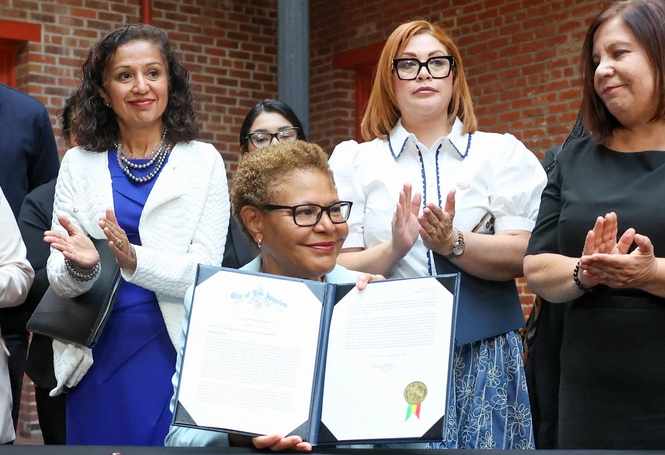The Anaheim City Council announced today that it has voted to extend a nearly 20-year-old tax exemption scheme benefiting Walt Disney Parks and Resorts for another 30 years — with the possibility of 15 more after that — in exchange for a commitment to make a $1 billion investment in its Anaheim Resort operations.
The council spent Tuesday evening discussing a substantial expansion of Disneyland Resort that would add attractions and parking with one significant caveat — the company wanted to prohibit admission ticket taxes for another 30 years.
Mayor Tom Tait, who supported the tax exemption in 1996, has had a change of heart since then, citing a $500 million unfunded pension obligation. The Lincoln Club of Orange County endorsed the plan on Monday.
In Tuesday night’s meeting, the city council, approved the tax exemption extension by a 3-2 vote, with Tait and Councilman James Vanderbilt opposed, a city statement said early today. The extension policy was adopted as a resolution and agreement with Disney, it said.
“The entertainment tax policy adopted on Tuesday runs for 30 years with the possibility of a 15-year extension,” the statement said. “The agreement calls for Disney to invest a minimum of $1 billion in the Anaheim Resort by Dec. 31, 2024. If Disney invests an additional $500 million by Dec. 31, 2045, the agreement could be extended by 15 years.”
The city statement said the newly approved agreement coincides with Disney evaluating the addition of new attractions that would drive attendance and longer stays at the Anaheim Resort.
“Should an expansion occur, it would fall within the existing footprint of the Disneyland Resort and come under entitlements approved in 1996,” it said.
The city also said Disney also is considering “significant infrastructure improvements that would have a direct, positive impact on circulation and traffic flow along Harbor Boulevard and Ball Road.”
The policy approved Tuesday provides for Disney to have until Dec. 31, 2017, to begin an expansion of its existing operations.
“The city of Anaheim will monitor key milestones and report on the status of the agreement in a public hearing within the first five years,” the statement said.
If Disney elects not to proceed with an investment, the agreement will be terminated, and “if the agreement remains active but terms are not met, the city of Anaheim can seek repayment of any entertainment tax rebate received, plus interest.”
“The Council adopted the entertainment tax policy in recognition of the important role Disney and the Anaheim Resort play in providing essential services for residents, businesses and visitors,” the statement said
“At 4 percent of Anaheim’s total acreage, the Anaheim Resort provides more than 50 percent of gross General Fund revenue — $147.8 million annually from hotel, sales, property and business license taxes,” it added, citing the city’s 2015-16 budget.
“After factoring in the cost of providing City services, the Anaheim Resort generates $67 million in surplus revenue annually, or nearly a quarter of Anaheim’s General Fund.”
The city added that surplus revenue from the Anaheim Resort helps to fund the Anaheim Police Department, Anaheim Fire & Rescue, and the Public Works Department.
“Since Anaheim and Disney partnered to expand the Anaheim Resort in the late 1990s, the city’s revenue from hotel stays has nearly tripled to a budgeted $133 million for 2015-16,” it said
The city also said that a potential $1 billion investment by Disney could result in $17.9 million per year in additional hotel stay sales tax and indirect property tax revenue for Anaheim, according to study prepared for the city by Los Angeles-based Beacon Economics LLC. A $1.5 billion investment could generate $26.8 million per year in additional hotel stay and sales tax revenue for Anaheim, according to the study.
The new agreement with Disney requires no city bond financing and no city spending. It does not require a second reading.

























